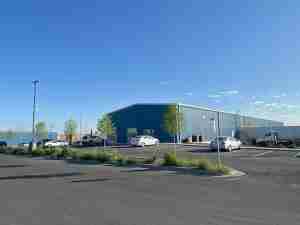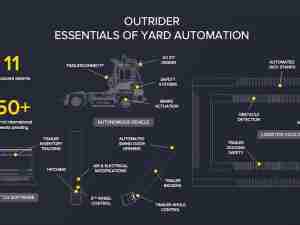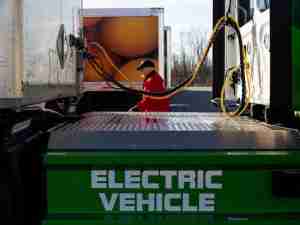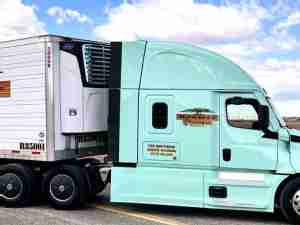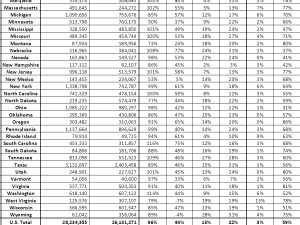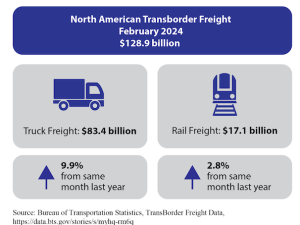Drivers in New York City inched closer to paying a new fee to enter Manhattan’s central business district after the Metropolitan Transportation Authority approved the nation’s first congestion-pricing plan, which could begin as soon as mid-June.
The board of the MTA, which is implementing the toll, authorized the pricing structure in an 11-to-1 vote during its monthly meeting on Wednesday.
“New York has more traffic than any other place in the US, and now we’re doing something about it,” Janno Lieber, the MTA’s chief executive officer, said at a press briefing following the meeting.
The new plan will charge most cars $15 for entering the borough south of 60th Street during peak times. It aims to reduce traffic, improve air quality, boost transit ridership and provide an estimated $1 billion a year to modernize the MTA’s network of subways, buses and commuter rails.
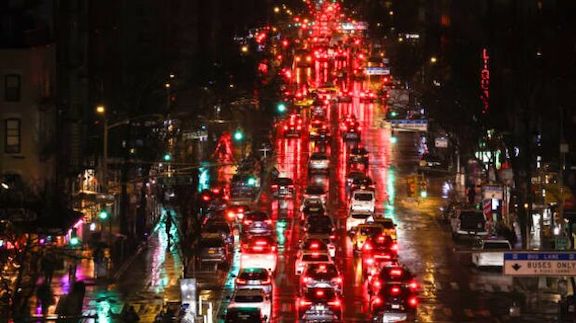
“Congestion pricing we know is going to produce less pollution in the region, less congestion in the region and a better economy in the region,” said Carl Weisbrod, chair of the MTA subcommittee that crafted the plan and a former director of New York City’s Department of City Planning.
While the MTA vote is a significant step, the program will need final approval from the Federal Highway Administration before the new charges can begin, a procedure that Lieber said he’s confident will happen in time for the MTA to begin charging drivers in June. But the program is contentious and faces several court challenges that could block or delay its implementation.
While the MTA, transit advocates and environmental groups support it, critics say congestion pricing forces local residents to pay a fee just to return home and will strain small businesses that will need to absorb the expense or pass it on to customers. It also comes at a time when crime on the subways is an increasing concern.
For New Jersey drivers who commute into New York City, the plan adds a toll on top of fees they already pay on crossings to get into Manhattan. A New Jersey district court in Newark is set to hear oral arguments on April 3 in Governor Phil Murphy’s legal challenge that’s seeking a longer environmental analysis of the program.
“This is far from over and we will continue to fight this blatant cash grab,” Murphy said in a statement following the vote.
Staten Island Borough President Vito Fossella, the United Federation of Teachers and a group of residents have also filed suit to delay or halt the new toll.
Those lawsuits have forced the MTA to put on hold subway signal upgrade projects in Manhattan and Brooklyn. Other projects are at risk: adding new elevators to subway stations, replacing old subway cars, extending the Second Avenue subway line to Harlem and even routine repair projects.
Lone Dissent
David Mack, who represents Nassau County on Long Island, was the only board member who voted against the tolling plan. He expressed concern that the new fee would hurt businesses and discourage people from returning to office buildings, which are still hurting from the pandemic shift to remote work.
“Don’t kill the goose that lays the egg,” Mack said during the meeting.
Read More: Love It or Hate It: New Yorkers Weigh In on Congestion Tolling
The vote comes after the MTA conducted a public hearing process so residents in the New York City area could voice their opinions on the tolling initiative. Of about 26,000 comments and testimonies the MTA received, 60% were supportive of the congestion-pricing plan while 32% were against it, according to an MTA internal document.
Under the plan, passenger cars with E-ZPass will pay $15 during peak periods, with E-ZPass trucks paying $24 during those hours. Vehicles without E-ZPass would pay more. Drivers already paying tolls on the Lincoln, Holland, Queens-Midtown or Brooklyn-Battery tunnels will receive discounts during peak times to help lower the new fee. Driving during the overnight hours is cheaper: E-ZPass passenger cars will pay $3.75 while E-ZPass trucks will pay $6.
The Trucking Association of New York called the MTA’s decision “reckless,” saying it will increase costs for businesses and consumers.
“This decision will have far-reaching impacts on New Yorkers everywhere, who will soon see increased prices for basic goods as motor carriers and the businesses they serve — including restaurants, bodegas, pharmacies, grocers, and everything in between – adjust to higher costs of doing business,” Kendra Hems, the TANY’s president, said in a statement.
Under the plan, taxi and for-hire passengers will pay a per-trip fee: $1.25 for taxi riders and $2.50 for for-hire customers, such as those using Uber and Lyft. Certain government and emergency vehicles, school buses and private bus operators, including the Hampton Jitney Inc., will be exempt from the plan.
State lawmakers approved the congestion pricing initiative in 2019 and tasked the MTA with implementing it.
